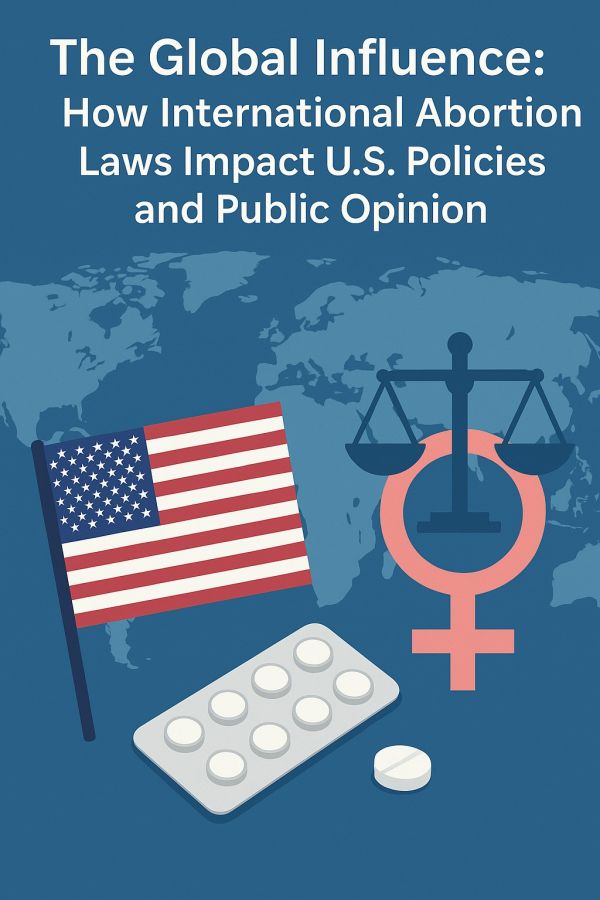Faith, Ethics, And Medicine: The Dilemma Of Healthcare Providers In States With Strict Abortion Laws

In the ever-evolving landscape of reproductive healthcare in the United States, healthcare professionals often find themselves at the crossroads of law, personal faith, and medical ethics. The overturning of Roe v. Wade has intensified this dilemma, especially in states that have imposed sweeping restrictions or outright bans on abortion services. For many medical professionals, the challenge is not only about delivering care but also about navigating a moral minefield that can pit their values and duties against each other.
The Legal Pressure on Medical Judgment
In states with strict abortion laws, physicians, nurses, and pharmacists are required to operate under rigid legal frameworks that can override their professional judgment. For instance, many providers are legally barred from offering abortion services even when a patient’s health is at serious risk—unless certain narrowly defined conditions are met. This has forced some providers to delay or deny care, even in emergency situations, out of fear of legal repercussions.
This legal pressure often contradicts core principles of medical ethics, which prioritize patient autonomy, beneficence, and non-maleficence. Thus, providers are caught in a complex web where doing what is medically right may be criminally wrong.

When Personal Faith and Professional Duty Collide
Adding another layer of complexity is the role of personal religious beliefs. Some healthcare providers may personally oppose abortion due to their faith. While federal law protects their right to conscientious objection, in practice, these objections can create significant barriers to care—especially in rural or underserved areas where few alternative providers exist.
However, many religious healthcare professionals argue that their faith also compels them to care for patients compassionately, which includes respecting a woman's right to make informed decisions about her body. In this context, the choice to provide or refer for abortion services becomes not just a legal decision, but a deeply ethical one.
The Role of Pharmacists and Access to Abortion Pills
Pharmacists have also been drawn into this ethical and legal tug-of-war. In several states, pharmacists can refuse to dispense abortion medications like mifepristone and misoprostol based on moral or religious objections. At the same time, those who wish to assist patients in legally accessing medication abortion may be restricted or monitored.
In response to these limitations, many women are turning to digital healthcare options to buy abortion pills online, especially in regions where in-person access is nearly impossible. Telehealth platforms have emerged as a critical alternative, allowing individuals to order abortion pills online or purchase abortion pill online discreetly. This shift not only circumvents local restrictions but also empowers patients to make reproductive choices privately and safely.
Military and Federal Healthcare Providers
The dilemma extends even further for healthcare providers employed by the federal government, such as those serving in military or VA hospitals. These providers often serve women stationed in states with abortion bans but are governed by federal policies that may differ. While the Department of Defense has implemented measures to assist service members in accessing abortion care, these efforts are often hindered by political pushback and logistical hurdles.
Thus, even within federally funded healthcare systems, the tension between state law, ethical duty, and personal belief continues to shape the care environment.
Navigating a Path Forward
Ultimately, resolving this complex dilemma requires both legal clarity and ethical dialogue. Institutions must provide clear guidelines that balance provider conscience with patient rights. Additionally, broader access to resources that allow individuals to online purchase Abortion Pill safely and legally can ease the burden on providers who are unwilling or unable to offer abortion services directly.
Moreover, fostering a healthcare environment where open conversations about ethics, faith, and law can occur without fear of retribution is essential. Only then can healthcare professionals provide compassionate, comprehensive care in accordance with both their personal beliefs and their professional responsibilities.
Conclusion
Healthcare providers in states with strict abortion laws are navigating unprecedented challenges. The intersection of faith, ethics, and law has created a fraught environment where every decision carries weighty consequences. As access becomes increasingly digital through avenues like buying abortion pill online, the ethical landscape for providers will continue to evolve—demanding nuance, empathy, and courageous decision-making.
Related items:
 7/26/2023
What Is The Slight Difference Between Side Effects And Symptoms?
7/26/2023
What Is The Slight Difference Between Side Effects And Symptoms?
 7/16/2020
Know the most recommended way to use Cytotec for abortion
7/16/2020
Know the most recommended way to use Cytotec for abortion